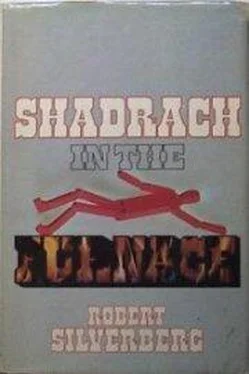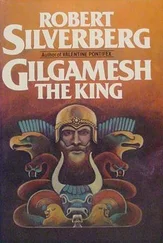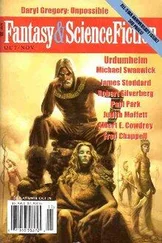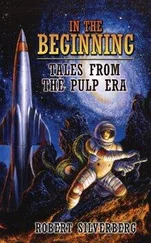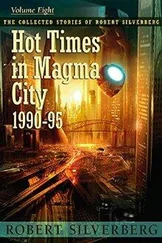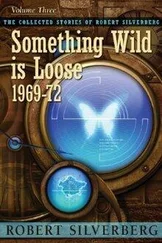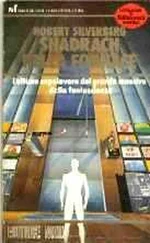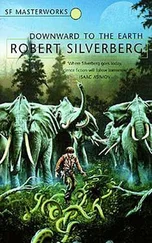“But I’m not Jewish,” Shadrach says.
“What does that matter? Come with me. You are a Christian?”
“Not particularly.”
“No religion at all?”
“No official religion. But I would like to go to the Wall.”
“Come, then.” They stride across the plaza, the short old man and the tall young one. Shadrach’s companion says suddenly, “I am Meshach Yakov.”
“Meshach?”
“Yes. It is a name from the Bible, The Book of Daniel. He was one of the three Jews who defied Nebuchadnezzar when the king ordered them to—”
“I know,” Shadrach cries, “I know!” He is laughing. Delight bubbles in him. It is a delicious moment. “You don’t have to tell me the story. I’m Shadrach!”
“Pardon me?”
“Shadrach. Shadrach Mordecai. It’s my name.”
“Your name,” says Meshach Yakov. He laughs too. “Shadrach. Shadrach Mordecai. It is a beautiful name. It could be a fine Israeli name. With a name like that you aren’t Jewish?”
“The wrong genes, I think. But I suppose that if I converted I wouldn’t need to bother changing my name.”
“No. No. A beautiful Jewish name. Shalom, Shadrach!”
“Shalom, Meshach!”
They laugh together. It is almost a vaudeville routine, Shadrach thinks. That Citipol lurking over there — is he Abednego? They are right by the Wall, now, and the laughter goes from them. The enormous weatherbeaten blocks seem incredibly ancient, as old as the Pyramids, as old as the Ark. Meshach Yakov closes his eyes, leans forward, touches his forehead to the Wall as though greeting it. Then he looks at Shadrach. “How shall I pray?” Shadrach asks.
“How? How? Pray any way you want to pray! Speak with the Lord! Tell Him things. Ask Him things. Do I need to tell a grown man how to pray? What can I tell you? Only this: it is better to give thanks than to ask favors. If you can. If you can.”
Shadrach nods. He turns toward the Wall. His mind is empty. His soul is empty. He glances at Meshach Yakov. The Israeli, eyes closed, is rocking gently back and forth, murmuring to himself in what Shadrach assumes is Hebrew. No prayers come to Shadrach’s lips. He can think only of the wild children, the organ-rot, the blank despondent faces along the Via Dolorosa, the posters of Mangu and Genghis Mao. This journey of his has been a failure. He has learned nothing, he has achieved nothing. He might as well get himself back to Ulan Bator tomorrow and face what must be faced. But the moment he articulates those thoughts, he rejects them. What of that sudden upwelling of optimism as he sipped tea with Bhishma Das? What of the moment of delight, of warm fellow-feeling, that he experienced on first hearing Meshach Yakov’s name? These two old men, the Hindu, the Jew, both so sturdy of soul, so patient and steady under the weight of the world catastrophe — has nothing of their strength rubbed off on him?
He stands a long while, listening to the silence within his body that is the absence of Genghis Mao’s outputs, and decides that it is not yet time to return to Ulan Bator. He will go onward. He will complete his tour.
He says, under his breath, too self-conscious to let Meshach Yakov hear it. “Thank you, Lord, for having made this world and for having let me live in it as long as I have.” Better to give thanks than to ask favors. Even so, asking favors is not forbidden. To himself Shadrach adds, “And let me stay in it awhile longer, Lord. And show me how I can help make it more like the place you meant it to be.” The prayer sounds foolish to him, mawkish, ingenuous. And yet not contemptible. And yet not contemptible. If it were given to him to live this one moment over, he would not revise that prayer, although he would not like to admit to anyone, either, that he had uttered it. When they are done at the Wall, Meshach Yakov invites Shadrach to dinner; and Shadrach, who has come to regret having refused Bhishma Das’s invitation, accepts. Yakov lives in the modern sector of Jerusalem, far to the west of the old city, out beyond the parliament buildings and the university campus, in a high-rise atop a bare lofty hill. The apartment house, one of a complex of twenty or so, has the glossy, glassy look favored in the late twentieth century, but the marks of decay are all over it. Windows are dusty, even broken, doors are out of true, the balconies are splotched with rust, the elevator creaks and groans. The place is more than half empty, Yakov tells him. As the population dwindles and services deteriorate, people have deserted these once-choice suburbs to live closer to the center of town. But he has been here forty years, he says proudly, and he intends to stay another forty, at the very least.
Yakov’s apartment itself is small, well kept, furnished sparsely in a tasteful, old-fashioned way. “My sister Rebekah,” he says. “My grandchildren, Joseph, Leah.” He tells them Shadrach’s name, and they all have a hearty laugh over the coincidence, the close biblical association. The sister is in her seventies, Joseph about eighteen, Leah twelve or thirteen. There are black-framed photographs on the wall — Yakov’s wife, Shadrach assumes, and three grown children, probably all victims of the organ-rot. Yakov does not say, Shadrach does not ask.
“Are you Jewish?” Leah demands.
Shadrach smiles, shakes his head.
“There are black Jews,” she says. “I know. There are even Chinese Jews.”
“Genghis Mao is a Jew,” Joseph says, and bursts into wild laughter. But he laughs alone. Meshach Yakov glares at him; Yakov’s sister looks shocked, Leah embarrassed. Shadrach finds himself shaken by the sudden intrusion of that alien name into this serene self-contained household.
Stiffly Yakov says to the boy, “Don’t talk nonsense.”
“I didn’t mean anything,” Joseph protests.
“Then save your breath,” Yakov snaps. To Shadrach he says, “We are not great admirers of the Chairman here. But I would not like to discuss such things. I apologize for the boy’s silliness. ”
“It’s all right,” Shadrach says.
Leah says, “Why do you have a Jewish name?”
“My people often took first names from the Bible,” Shadrach tells her. “My father’s father was a minister, a religious scholar. He suggested it. I have an uncle named Absalom. Had. And cousins named Solomon and Saul.”
“But the last name,” the girl persists. “That’s what I mean. It’s Jewish too. There once was a great rabbi named Mordecai, in Germany, long ago. We heard about him in school. Do black people pick their own last names too?”
“They were given to us, by our owners. My family must once have been owned by someone named Mordecai.”
“Owned?”
“When they were slaves,” Joseph whispers harshly.
“You were slaves too?” the girl says. “I didn’t know. We were slaves in Egypt, you know. Thousands of years ago.”
Shadrach smiles. “We were slaves in America. More recently.”
“And your owner was a Jew? I don’t believe a Jew would own slaves, not ever.”
Shadrach wants to explain that the slavemaster Mordecai, if ever he existed and gave his name to his blacks, was not necessarily Jewish, but might have been, for even Jews were not beyond owning slaves in the days of the plantation; but the discussion is making Meshach Yakov uncomfortable, apparently, and with such abruptness that the children are left gaping he changes the subject, asking his sister whether dinner will be ready soon.
“Fifteen minutes,” she says, heading for the kitchen. As though heeding an unspoken warning to leave the guest in peace, Joseph and Leah withdraw to a couch and begin a stilted, awkward conversation about events in school — a worldwide holiday has been proclaimed, it seems, for the day of Mangu’s funeral, and Joseph, who is at the university, will be deprived of a field trip to the Dead Sea, which annoys him. Leah cites some remark made by Jerusalem’s PRC chief about the importance of paying respect to the fallen viceroy, bringing a derisive hoot from Rebekah in the kitchen and a brusque comment about the official’s intelligence and sanity, and soon things degenerate into a noisy, incomprehensible discussion of local political matters, involving all four Yakovs in a fierce bilingual shouting match. Meshach, at the outset, attempts to explain to Shadrach something about the cast of characters and the background, but as the dispute goes along he becomes too embroiled in it to keep up his running commentary. Shadrach, baffled but amused, watches these articulate and spirited people wrangle until the arrival of dinner brings a sudden halt to the debate. He has no idea what the battle was about — it has to do with the replacement of a Christian Arab by a Moslem on the city council, he thinks — but it cheers him to see such a display of energy and commitment. In Ulan Bator, bugged and spy-eyed to an ultimate degree, he has never witnessed such furious clashes of opinion; but perhaps the spy-eyes have nothing to do with it, perhaps it is only because he has lived outside the framework of the nuclear family for so long that he has forgotten what real conversation is like.
Читать дальше
